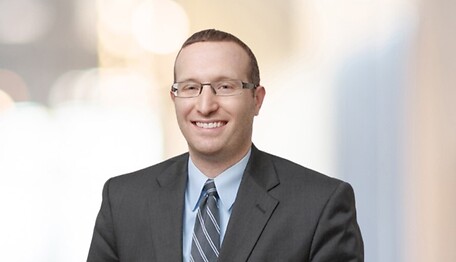Pennsylvania Supreme Court Considering Repeal of the Venue Rule in Medical Professional Liability Cases
The Commonwealth of Pennsylvania was facing a healthcare crisis as of 2002 due, in part, to costly medical malpractice litigation which was impairing the ability of Pennsylvania healthcare institutions to provide quality care to patients at a reasonable cost. In response, the Pennsylvania General Assembly enacted sweeping medical malpractice tort reform with the passage of the Medical Care Availability and Reduction of Error (MCARE) Act, 40 P.S. §§ 1303.101, et seq., and the Supreme Court promulgated new rules of civil procedure seeking to restore balance and fairness to medical malpractice litigation in the Commonwealth.
In MCARE, the General Assembly recognized that changes in the healthcare delivery system unduly expanded the reach and scope of existing venue rules. The Supreme Court subsequently amended the applicable rules of civil procedure pertaining to venue in medical malpractice actions to limit venue to the county in which the cause of action arose. See Pa. R. Civ. P. 1006(a.1). Rule 1006(a.1) reflected the intent of the General Assembly to redress the undue expansion of venue and prevent forum shopping in medical malpractice actions. Another critical component of the Supreme Court’s rule reform was its adoption of the Certificate of Merit Rules, Pa. R. Civ. P. 1042.3, et seq., requiring plaintiffs to obtain a statement from a qualified medical professional vouching for the legitimacy of the claim prior to filing suit. See Wilson v. El-Daief, 964 A.2d 354, 370 (Pa. 2009) (the purpose of the certificate of merit rule was “to curtail the filing of non-meritorious medical malpractice actions . . . .”).
On December 22, 2018, more than 15 years after the implementation of these changes, the Civil Procedural Rules Committee of the Supreme Court has proposed rescission of the venue rule in medical malpractice cases on the grounds that it “no longer appears warranted.” See 48 Pa.B. 7744. According to the Committee, “data compiled by the Supreme Court on case filings on medical professional liability actions indicates that there has been a significant reduction in those filings for the past 15 years. Additionally, it has been reported to the Committee that this reduction has resulted in a decrease of the amount of claim payments resulting in far fewer compensated victims of medical negligence.” Id. (citation omitted).
The proposed repeal of the venue rule is misguided. The data itself on which the Committee relies does not support its conclusions. To the contrary, the reduction in filings demonstrates that the tort reform measures enacted by the legislature and the Supreme Court, especially the Certificate of Merit requirement, are working. Nothing indicates that venue in the county in which the medical malpractice claim arose deprives alleged victims of access to the courts.
Elimination of the venue rule in medical malpractice actions will likely have an adverse impact on healthcare providers. The elimination of the medical malpractice venue rule would encourage forum shopping, which contributed to the medical malpractice crisis that led to the sweeping tort reform measures in the first instance. Not only will this expose healthcare providers to the prospect of increased settlement amounts and jury awards, as well as increased insurance premiums, but it will impose greater burdens on healthcare providers who, instead of rendering patient care, will be forced to travel far from home to attend depositions and trial. The proposed elimination of the venue rule by the Civil Procedural Rules Committee will inure to the detriment of healthcare providers and, by extension, the thousands of patients across the Commonwealth whom they treat on a daily basis.
The Civil Procedural Rules Committee is accepting comments by all interested parties with respect to this proposed change through February 22, 2019.
White and Williams LLP understands how important this issue is to every healthcare provider in the Commonwealth. If you would like to discuss its impact, have questions or need guidance drafting a comment in opposition to the proposed amendment for the Committee’s consideration, please contact Kim Kocher (kocherk@whiteandwilliams.com; 215.864.6332), Joshua Gajer (gajerj@whiteandwilliams.com; 215.864.6837) or another member of the Healthcare Group.
PRACTICE AREAS
Practice Areas
KEY ATTORNEYS
-
Partner

